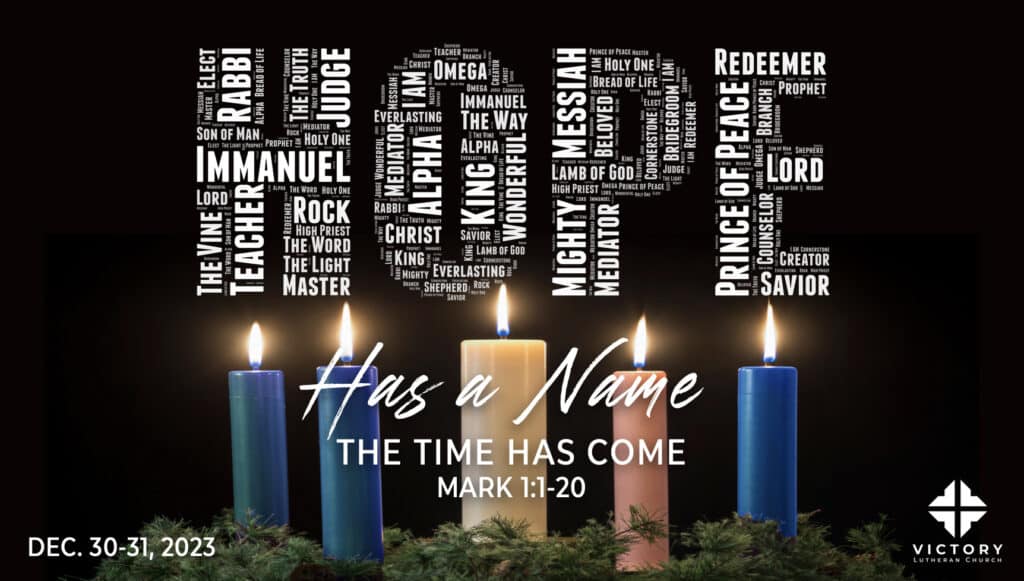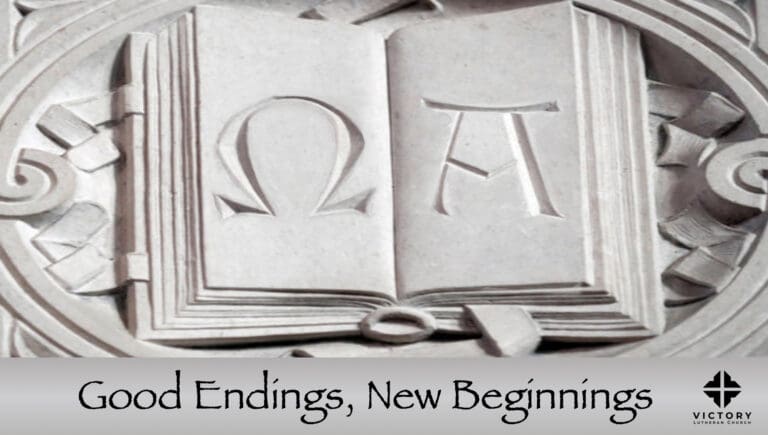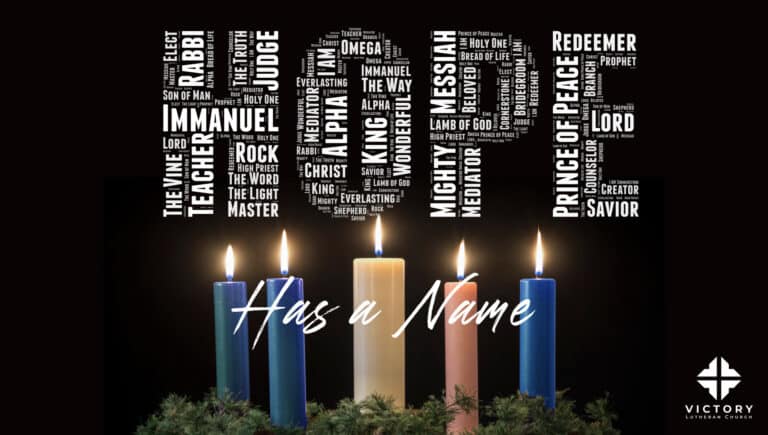Hope has a name. That’s the series of sermons that we are in. And today we’re going to look specifically at a text that’s going to encourage us to trust God in every season of life. You know, the pages of scripture, they’re filled with very earthy, very real stories of real people. I think we often sanitize or gloss over the day to day existence of the people recorded in all the scripture stories. And our text today carries as much human drama as any of the other people in the Scriptures. The drama in today’s Bible text, which comes from Luke chapter 1, so if you have your Bibles or devices I encourage you to turn there, Luke chapter 1. The drama in our text today concerns itself with something that’s very tender and terrible, but very common for many, and that has to do with the bearing of children. Or in this case, not being able to bear children. My wife Ann and I have very good friends from early days in our marriage, dear friends who have struggled with the challenge that many couples face in silence. That’s the challenge of infertility. And if you or anyone you know have struggled with this, you know how deep and troubling this can be.
Not just physically, but deeply emotional and spiritual. It goes right to the core of your own identity. And as we prayed time after time with our friends about their desire for a child, it was met with silence from God, and yet our friends invested themselves in remarkable ways in our own family with our newborn baby girl. Our friends truly exhibited a deep giving. Love, even out of their need. And the friendship still blesses our hearts today. And you know what? After a long, extended season of silence, God answered their prayers. And they were blessed with a pretty miraculous birth themselves. The gift of their one and only child, a daughter, who today is now married and the family is just flourishing. Their story has a happy ending, from a season of silence to a season of fulfillment. Though their journey was filled with dark valleys itself, for some today maybe you are still in that season of silence and waiting. For you, and really for all of us, this message is for us here today. Our Bible text in Luke 1, it follows a similar story track. A journey through the seasons of silence of Promise and then of fulfillment where you remember the fulfillment for the rest of your days. Let me begin by starting at verse five in Luke chapter one. In the time of Herod King of Judea, there was a priest named Zacharia who belonged to the priestly division of Abijah.
His wife, Elizabeth, was also a descendant of Aaron. Both of them were righteous in the sight of God, observing all the Lord’s commands and decrees blamelessly. But they were childless, because Elizabeth was not able to conceive, and they were both very old. Once, when Zachariah’s division was on duty, and he was serving as priest before God, he was chosen by Lot, according to the custom of the priesthood, to go into the temple of the Lord and burn incense. And when the time for the burning of incense came, all the assembled worshippers were praying outside. Then an angel of the Lord appeared to him, standing at the right side of the altar of incense. When Zechariah saw him, he was startled and was gripped with fear. But the angel said to him, Do not be afraid, Zechariah. Your prayer has been heard. Your wife, Elizabeth, will bear you a son. And you are to call him John. Then I want to move to verse 18. Zechariah asked the angel, How can I be sure of this? I am an old man and my wife is well along in years. The angel said to him, I am Gabriel. I stand in the presence of God. And I have been sent to speak to you and to tell you this good news. And now, you will be silent and not able to speak until the day this happens, because you did not believe my words, which will come true at their appointed time. Meanwhile, the people were waiting for Zechariah and wondering why he stayed so long in the temple.
When he came out, he could not speak to them. They realized he had seen a vision in the temple, for he kept making signs to them, but remained unable to speak. When his time of service was completed, he returned home. After this, his wife Elizabeth became pregnant, and for five months remained in seclusion. The Lord has done this for me, she said. In these days, he has shown his favor and taken away my disgrace among the people. The word of the Lord. Let’s pray. Father in heaven, you meet. You meet your creation, you meet your people, you meet even us today in, in real time. Thank you for this account of Zachariah and Elizabeth and your word of promise to them as we consider their story. And now by your Holy Spirit, enliven our hearts that we might see our story also in yours. I ask in Jesus name, Amen. Dear friends, grace to you and peace from God, our Father and our Lord and Savior, Jesus Christ. Amen. The title of today’s message, trusting God’s Word in Every Season of Life, that season of life framework, it, this message is not a shape, uh, shaped around like seasons, like early, middle, later, those kinds of seasons or errors of your life.
Rather, I’m framing this message by seasons of experiencing God’s promises, seasons of silence. of hearing His promise and then of fulfillment of remembering. So let me begin with the season of silence. And let’s set the context for a Bible text. This is happening, Elizabeth is actually the cousin of Mary, the mother of Jesus. Though quite a bit older, generationally. And so this is set right around the time of Jesus birth. And in the town of Jerusalem, a righteous priest named Zechariah and his wife Elizabeth faced the disheartening silence, the silence of barrenness. Despite their godly living, the couple endured the ache of unfulfilled longing. It’s hard to trust God’s promises during seasons of silence. Have you found that to be true, yourself? Life, much like Zachariah and Elizabeth’s, often confronts us with seasons of waiting, of uncertainty, of silence, of wondering where is God in all of this. And Zechariah becomes an illustration of the significance of trusting God’s promises, especially when the circumstances seem bleak and the silence is deafening.
Why does God allow seasons of silence? I can’t answer comprehensively or maybe even specifically for you, but as I’ve been considering this, I think what I’m learning, and it might be a lifelong lesson. That it is in the seasons of silence that God best builds our understanding that his plans transcend our own, our own understanding and our comprehension. And that as we live in that season of silence, God can lead us to walk in pathways of humility that we would not otherwise. Pathways in which we regularly acknowledge the fact that his timing, though often different than our own, his timing is always perfect. That is the season in which we find Zachariah and Elizabeth. A season of silence. And you might well relate to being in a season of silence yourself. Which leads me from a season of silence to the season of promise. As our text reveals, when Zachariah first heard the promise of God through the angelic messenger, his first response was actually that of disbelief. In verse 18, Zachariah asked the angel, How can I be sure of this? I’m an old man, and my wife is well along in years. And, I mean, come on, really? Let’s be real. Who can blame? Zachariah for his unbelief. Zachariah and his wife Elizabeth endured years, decades of married life and yet remaining childless despite their prayers.
Wandering in their hearts desperately seeking God for a child only to receive the answer of stunning silence and barrenness year after year. So really who can blame Zachariah for his unbelief? Well, the, the angel did. God’s angelic messenger, Gabriel, says, I am Gabriel, and I don’t, you don’t know who I am, do you? I stand in the presence of God, and I’m bringing a message directly from God to you, an answer to your deepest longing. And so Zachariah’s disbelief results in him becoming mute, silenced. Until the fulfillment of God’s promise would be realized. But let us not be too quick to blame Zachariah. For are not we, ourselves, prone to doubt God’s goodness in seasons of silence and waiting? Seasons where prayers seem to remain unanswered and questions linger and actually haunt. Yes, Zachariah’s first response was that of doubt, but here’s, I think, how we can sanitize the story sometime. I want you to think carefully with me on the ark. of this story. Zachariah comes out of the temple, after his temple service is done, unable to speak.
And so the people think he’s seen a vision. And so, he must have communicated the angel’s message, certainly to his wife, Elizabeth, somehow in writing or gesturing through tears, smiles, laughing. Ultimately believing, believing God’s promise that both of them, Zachariah and Elizabeth, would have a child of their own. And this is when they were well beyond the begetting or bearing children years. Believing enough that, I’ve been trying to think about a way to put this delicately. There were no blue pills back in those days. Elizabeth had long laid down her fan that had cooled her hot flashes. But now this? Now God’s promise they would have a child? So the ultimate response, and they had to act on God’s promise, was that Elizabeth and Zachariah, unlikely as God’s promise would be, they actually responded In obedience, and so I want to acknowledge the help I received from a theologian I respect, Walter Wangren, who actually wrote about this. It wasn’t just me thinking about this, okay? So let me use his words to spell it out for us, as he reflects on Zachariah. After you returned from your duties in Jerusalem, in the night when you made wordless love to your wife, so that God might love the world thereby. That was not the blind compulsion of sexual urges, nor was it an act coerced by a controlling God.
It was obedience. And true obedience was ever an act of freedom, never the reaction to opposition. Obedience unto God is personal participation in the love of God. Zachariah and Elizabeth’s response to God’s improbable promise was ultimately faith and obedience, to trust and obey. Such that Elizabeth is one of the fulfillments of the psalm that Richard just read for us, the last verse. God settles the childless woman in her home as a happy mother of children. Praise the Lord. You see, seasons of silence can be suddenly invaded by the season of promise. That while at first may be unbelievable, it can lead to grateful obedience and anticipation and participation. In God’s unrevealing plan. Which brings me to the final season. The season, I’m calling it the season of remembering. It’s really the season of fulfillment that you remember for the rest of your life. Our text is brought home, and I want to pick this up in verse 57. When it was time for Elizabeth to have her baby, she gave birth to a son. Her neighbors and relatives heard that the Lord had shown her great mercy and they shared her joy. On the eighth day, they came to circumcise the child. And they were going to name him after his father, Zachariah. But his mother spoke up and said, No, he’s to be called John. They said to her, There’s no one among your relatives who has that name.
Then they made signs to his father to find out what he would like to name the child. He asked for a writing tablet. And to everyone’s astonishment, he wrote, His name is John. Immediately, his mouth was opened and his tongue set free, and he began to speak, praising God. All the neighbors were filled with awe, and throughout the hill country of Judea, people were talking about all these things. God had fulfilled his promise. This is the season of fulfillment, or of remembering. I discovered in my studies that the name Zechariah means Yahweh. Which points us to the truth that God himself remembers us. God remembers you. God remembers our lowliest state. He remembers our needs and our ultimate need of a Savior. And while there are times when you may wonder if God truly does know what’s going on in your life or care, especially in those seasons of silence, those questions are boldly answered when you do finally see God’s hand at work in your life. And you realize that God is keeping his promise to you in ways more wonderful and fitting than you could have ever asked or imagined. It’s when God’s answers break into your life that it’s finally made clear to you that God has been tending you continually and gently. Even when you are unaware. Through a season of silence, to then trusting his promise, and when the fulfillment, his answer, finally bursts forth. God, you see, is a God of history, weaving our past and our future together in His name story in his love bound. God is to us by a covenant of grace. When you think about it, Zachariah and Elizabeth can remind us of Abraham and Sarah. Remember, we were, we looked at them a number of months ago and you may know this from your own Bible reading. Both couples were childless and both couples were too old to bear children.
And yet, both couples each received the promise of a son, an improbable A divine child to be born. Think about this, it was through Abraham and Sarah that God first revealed his covenant between himself and humankind. And then it was through Zachariah and Elizabeth that now introduces us to the new and final covenant, the covenant of Christ’s blood, the covenant of grace. Zachariah’s transformative journey from doubt to faith can serve as an encouragement to our own spiritual pilgrimage. Yes? Zacharias shows us the critical importance of trusting God’s word, His promises in every season of life, whether it be a time of waiting, of fulfillment, or facing challenges. For indeed, the stories in the Bible are very earthy, real, just like your life is. And their stories are Bible worthy. And you know what? So is yours. And why? Because God is involved in all of your stories. Theirs and ours. And yours. God is writing Salvation History in your story. God is accomplishing Salvation History for you in real time, through your life. So this Christmas, don’t forget to include Jesus story as part of your own. As we stand on this threshold of celebrating another Christmas remembrance, Let our hearts be stirred with a profound sense of trust in God’s Word throughout every season of life. And let us celebrate the fulfillment of God’s Word in our lives, seen especially in the giving of his one and only Son, Jesus Christ.
For God’s promises are not just wishful thinking, they are sure. His plans are perfect, and his faithfulness endures forever. Join me in prayer. Holy Spirit, impress in our hearts the meaning and reality of Christ’s coming as we celebrate Christmas and remember his first coming, knowing that he will come again and that in this in between time, you are with us, God with us, Emmanuel. Lord Jesus, be glorified in our hearts this Christmas and in our lives beyond to the glory of your name. Amen.














































